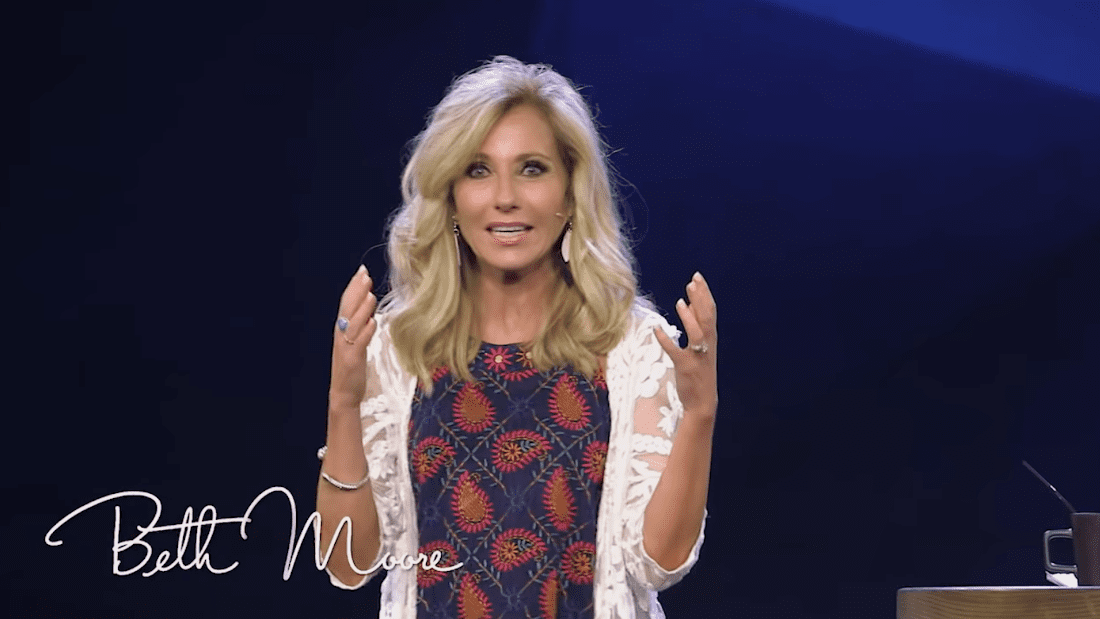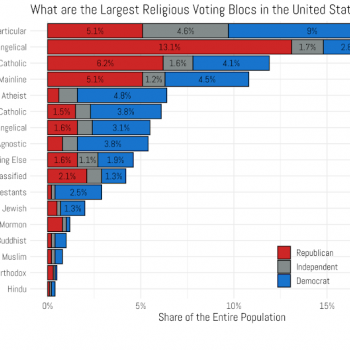Bible teacher Beth Moore announced last month that she was leaving the Southern Baptist Convention due to its racism, treatment of women, support for Donald Trump, etc. Many people cheered her on in confronting both the unhealthy hypocrisy and patriarchy embedded in her tradition — and giving other women courage to do the same.
Last week, she went further and apologized for her complicity in promoting complementarianism, the Christian belief that men and women have predetermined traditional gender roles (and the main reason Moore herself can’t be a church leader within the SBC).

Throughout all this, Moore maintained she’s still a Christian — and a Baptist. She’s just distancing herself from the more harmful versions of those beliefs.
But not everyone is impressed by her actions. Writing for Religion Dispatches, J. Dana Trent wants to know why Moore waited this long to part ways with the SBC and why she didn’t go even further in denouncing complementarianism.
Some of it, Trent admits, may have been contractual with her SBC-affiliated book publisher. But why not disavow complementarianism entirely? For Trent, the weak dismissal is parallel to how some people have handled racism.
So you reject complementarianism as a litmus test for Biblical inerrancy, authority of scripture — but are unwilling to strike this “doctrine of MAN” (your words) altogether. This suggests that you believe there are circumstances in which complementarianism is appropriate.
…
You benefit from maintaining a neutral posture on complementarianism the way white women benefit from not denouncing racism. If the white men lose another inch of privilege, status, power, and authority, their white women will as well. By association, you have historically derived your power and authority from white men.
…
When you fail to denounce complementarianism explicitly but assure your readers that it’s not a litmus test for Biblical inerrancy, it’s analogous to saying, “I definitely don’t think the Bible says you have to believe white people are more beloved by God than Black people … but I’m not prepared to say that it’s categorically wrong.”
…
Perhaps you’re reluctant to reject complementarianism in totality because you have too much to lose: namely, supporters who still find the construct useful. In this way, as I noted earlier, you’re much like white women who refuse to do the work of anti-racism because they derive power and authority from their white men.
There are some valid criticisms here. I don’t disagree with the notion that complementarianism is harmful to both sexes. But it also strikes me as a bit too soon to throw stones at Moore for not being more of an activist just yet. We don’t know how long she’s felt this way or what (if anything) she’s done behind the scenes to change other Baptists’ minds on this matter. If you want someone to take big steps, you have to let them take small steps along the way.
That’s not making excuses for any of the harm that’s been perpetuated by some of Moore’s theology. But I’d rather see her take time off from social media for self care — as she said she’s doing — and hopefully more self-reflection than spew a bunch of half-baked hot takes because it’s what her audience wants.
Beth could make a statement that touches on all the notes her critics want to hear. It would still mean nothing without actions to back it up. Whatever direction she’s now going, she deserves to be judged on what she does in the future, not only on what she says right now.




It’s Moving Day for the Friendly ..."
It’s Moving Day for the Friendly ..."
It’s Moving Day for the Friendly ..."
It’s Moving Day for the Friendly ..."